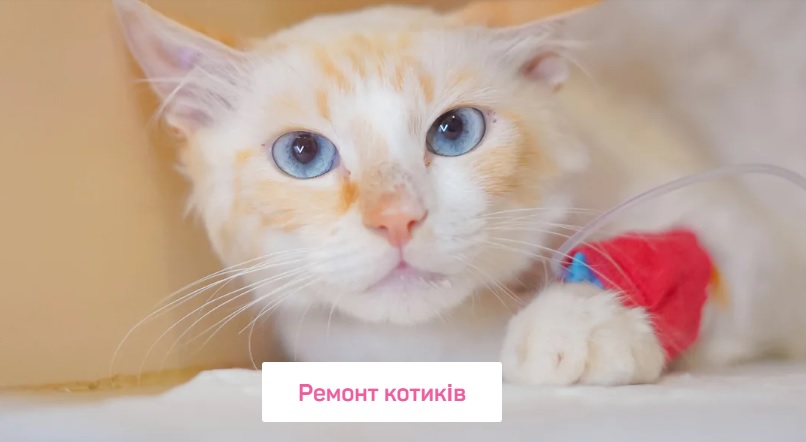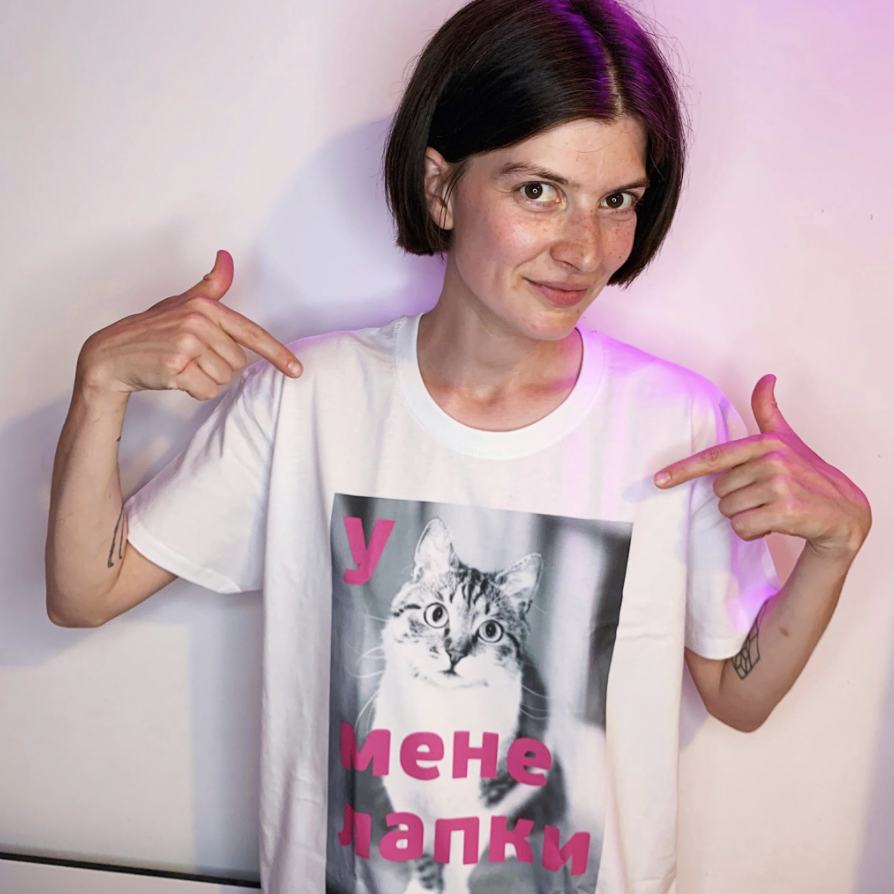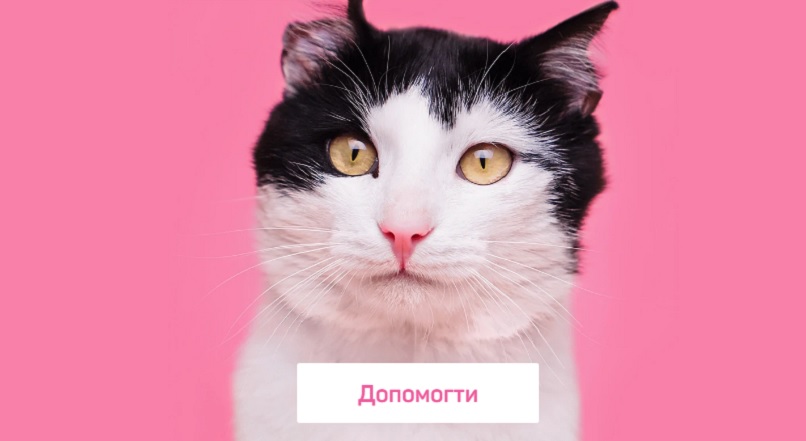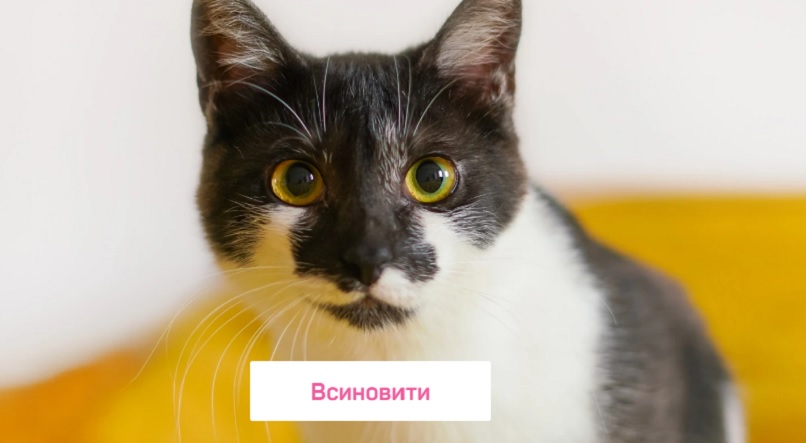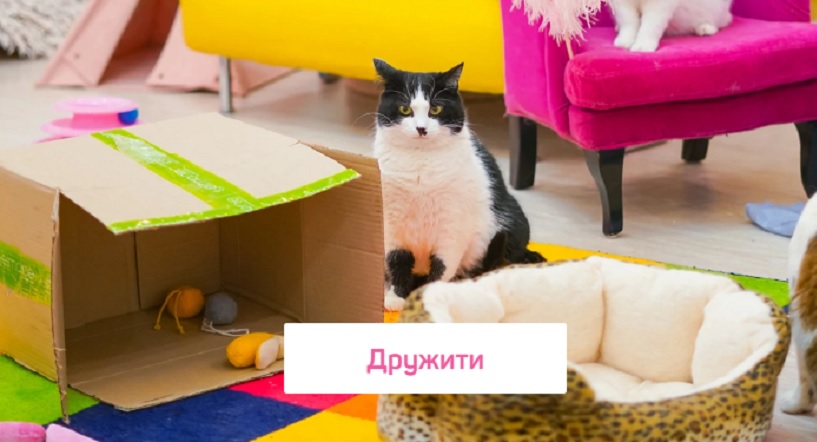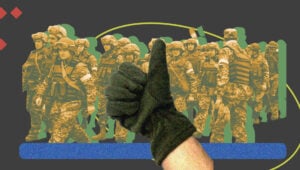Not all heroes wear capes. Profession: stray cats rescuers
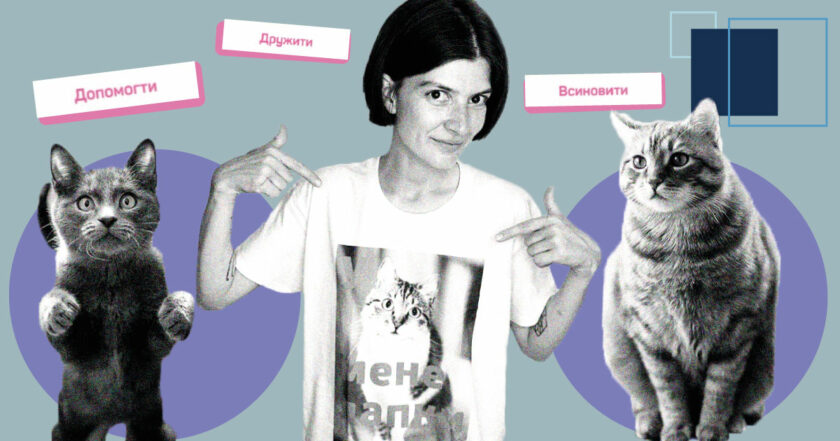
"Smelly Cat, Smelly Cat, what are they feeding you? Smelly Cat, Smelly Cat, it's not your fault. They won't take you to the vet. You're obviously not their favorite pet. You may not be a bed of roses. You're not a friend to those with noses."
We give 9 out of 10 that you imagined a Central Perk coffee shop, where the incredible Phoebe Buffet performs her most famous hit. Which could well be an unofficial anthem for homeless animal rescue volunteers. Although first, of course, of cats. We explain how professional rescuers of stray cats work: how they face difficulties, how they overcome them, and what criteria they consider when choosing families for their wards.
There are no accurate statistics on the number of homeless cats in Ukraine, but there's no doubt that the number is in the hundreds of thousands. Moreover, the lack of control over their birth rate leads to an increase in the number of such animals.
The fate of homeless cats is incredibly depressing: most of them die of hunger, disease, injury, hypothermia, and more. Just for comparison: their life expectancy is 2-3 years, while domestic cats live up to 20 years.
Of course, the state is practically not engaged in the treatment and finding homes for stray cats. But volunteers, of course, are involved. And they've already put their treatment and finding a home on professional rails. So what is it like to be a volunteer who saves animals? It means…
… treating them and looking for homes
The Hochukota (I Want a Cat) Foundation was one of the first organizations that made rescuing homeless cats their profession. Their work essence is simple: to find stray cats, treat them, and look for homes. The result: over the past three years, 734 animals have found families where they are cared for and loved.
One of the founders of the foundation, Yevhenia Drach, says that the idea of creating Hochukota came when its founders helped one of Kyiv's shelters look for new families for cats at specialized city festivals.
"Returning animals that didn't find a home was extremely depressing, so we started looking for a place where they would wait for new homes in Kyiv. We found a veterinary hospital that placed cats in a hospital and started distributing them just from there. Later, the number of appeals began to grow, so we decided to create a separate project to save and accommodate cats," says Drach and adds: for some time it became clear that the clinic isn't the best place to wait, so the foundation began to "look for the premises that look like an apartment so that cats live comfortably and already train to live home."
Such a place was found, and called the "Cat-therapy Center." Today, most of the 62 wards of the foundation live there. The rest of the animals are in temporary families of volunteers.
But we're talking about healthy cats here.
"Sick animals are treated at the hospital of a partner clinic or at home with our nannies," says Drach.
… being prepared to get into debt because of expensive treatment
The treatment of stray cats is something that changes the perception of the usual search for new homes for them and actually brings such activities to a professional level.
Vaccination, neutering, obtaining a veterinary passport and microchip, a medical examination is not a complete list of procedures that a cat must undergo to be ready to move to a new family. And this doesn't include the treatment of injuries and diseases.
This may be the biggest problem in rescuing stray animals: veterinary services are expensive and cost a fortune. And for Hochukota now it has turned into a big problem: the debt of the fund for the treatment of cats is 90 thousand hryvnias. Which forced them to stop accepting new wards until the debt is repaid.
… not relying only on philanthropists
Lack of funds for animal volunteer organizations is always about finding philanthropists. In this regard, Hochukota is no exception; almost the primary source of the fund's financial income is charitable contributions.
"We exist thanks to the contributions of philanthropists. Monthly contributions are vital; it is thanks to them that we can plan our activities. We also sometimes receive large ones, one-time sums from individual philanthropists or companies," says Yevhenia Drach.
It is at the expense of charitable funds that Hochukota intends to cover its 90,000 debt. And, importantly, they succeed: so far the fund has raised more than 12.5 thousand hryvnias.
However, if in terms of raising funds to repay the debt, charity is an ideal option, then relying solely on it in other aspects of the fund is the path to suicide. The reason for this is the unreliability of such revenues. It is impossible to guarantee a continuous flow of charitable funds, and therefore, it is also impossible to develop a long or at least medium-term project development strategy, based solely on charitable contributions.
To do this, animal charities are actively developing additional sources of income, thus expanding their capabilities on the one hand, and protecting themselves from being hooked on a "charity needle" on the other.
In search of additional income, Hochukota opened a store with its own merch: clothes, accessories, badges, stickers, postcards, etc.
"We strive to attract all possible sources of funding, and the souvenir shop is one of them. It has great potential, which we haven't yet fully realized; there is simply not enough workforce. However, the shop already helps us pay for very expensive treatment of sick cats with feline peritonitis, pay for advertising of cats looking for families, as well as some expensive examinations such as MRI," says Yevhenia Drach.
Besides the shop, the fund earns money by holding auctions, the lots of which are books sent to the fund by philanthropists specifically for this purpose, as well as handmade jewelry, cat furniture, toys, and much more.
Another source of alternative income for volunteers is the so-called "Campaigns," art and sports projects designed to raise donations to support the foundation's activities.
Thus, 2 artists, Oleksandra and Anastasia, create portraits of a person/cat/person with a cat for this purpose, and volunteer Vadim runs marathons for cats.
So far, the Campaigns have raised more than 13.5 thousand hryvnias for the fund. This will be enough, for example, for 45 days of work for a caregiver for two sick cats.
… not forgetting that volunteering is a profession
"Our work is often urgent calls, night work, various complex emergencies. It cannot be fully combined with, for example, office schedules," said Yevhenia Drach, revealing the largely ignored and sometimes disapproving aspect of volunteering: it is a full-fledged profession. Therefore, it must be paid.
"Until a person receives a salary, they can not dedicate themselves completely to work. After all, besides work (so difficult psychologically and physically), it is necessary to constantly look for means of subsistence both for themselves and their family. And this is a direct path to burnout. This person not only will leave charity, but they will also still remain unhappy," explains Drach.
To avoid this, and to ensure the sustainable development of the fund and increase its achievements, "Hochukota" rewards its volunteers: as those who work on a permanent basis (say, designers and illustrators, authors of merch, or a volunteer who communicates with customers), and those who work from time to time.
"These employees receive a salary. Some have a stable rate, some have a rate + payment for certain work, or only payment for services rendered," said Drach.
… carrying out a strict selection of potential owners
During the three years of its existence, the Khochukota Foundation managed to find homes for 734 cats. That's almost 250 a year. The fund treated even more cats who recovered from serious injuries and illnesses.
However, volunteers don't aim to give cats to people at any cost.
"Our goal is not quantity, but quality. We diligently select families for our wards," says Yevhenia Drach.
Hochukota sets strict criteria for selecting a new family for its pets: cats are given only to apartments for home living, with glazed balconies and "anti-cat" nets on all windows, without the possibility of walking on the street.
In addition, all potential families are interviewed, sign a binding care agreement, and stay in touch after the foundation staff personally brings their pet to them so that in the event of unsatisfactory conditions/loss of support, volunteers can take the animal back.
And such strict requirements bear fruit: almost all cats stay in new homes forever, and cases when they had to be taken back to the fund, according to Drach, are rare.
… making no delay and not being afraid of obstacles
Another animal charity, Adopt Don't Stop, works on a similar program. Its staff has launched a program to sterilize stray animals, rescue and find homes for seriously ill cats and dogs, as well as educate the public to develop a responsible and friendly attitude towards animals.
However, all this is about Kyiv. And it's the only "bug" in the work of such funds because it's impossible to take care of homeless animals without branches in all cities of Ukraine. And the opening and full operation of such branches require huge funds, to ensure a constant flow of which, while maintaining independence in their actions, is not realistic.
That is why Khochukota advises everyone who cares about homeless animals to make no delay and open similar funds in their cities. Moreover, according to Yevhenia Drach, "there are no bureaucratic obstacles and difficulties with the creation of an animal charity fund." You just have to be prepared for the fact that:
- to begin with, you will need to find a spacious, light, well ventilated and fully equipped premises for accommodation of homeless cats;
- enlist the support of at least one veterinary hospital for vaccination, neutering, chipping, treatment, etc .;
- hospital services are expensive, and therefore the phenomenon of debt is a matter of time. The main thing is not to be afraid of it, but to have a clear plan for repayment;
- relying solely on charitable contributions is the path to failure. Therefore, additional ways to earn is a must-have. Souvenir shop, auctions, various donor collection projects: it's your imagination;
- volunteer work must be paid. The less your employees think about finding personal income, the more they will work. With sheer enthusiasm, you can only start, and burn out;
- Only those people who can provide all the necessary conditions will be able to become the new owners of your wards, and most importantly, realize the full responsibility, taking "patronage" over the cat. Otherwise, the unfortunate animal will have to be taken back.
The system is working and successful. Checked by volunteers from Hochukota.
… just not being indifferent
And for those who aren't ready to devote most of their time to rescuing stray cats, but still want to help them, Rubryka offers a few simple ways to do this:
- put a few packets of food in the bag: who knows where you will meet a hungry homeless cat. It is better for the food to be moist; cats develop thirst from dry food, and it is difficult to find water on the street;
- don't put food in a cellophane bag, cats can swallow it, which can lead to intestinal obstruction and cause serious injuries;
- foster the cats temporarily until the volunteers take them to the shelter or find new families for them;
- keep in touch with animal volunteers and give them information about the place where they came across a stray animal to simplify the search and speed up rescue;
- help volunteer organizations -with money, food, things, etc. If possible, enroll in the ranks of volunteer drivers; volunteers rarely have enough transport to transport cats to hospitals, festivals, etc.;
- in winter, let stray cats bask in basements, porches, or provide a warm shelter.
Cats heat the pipes so that the water is hot. And they insulate our clothes with their wool. Why not thank them for it?:)


